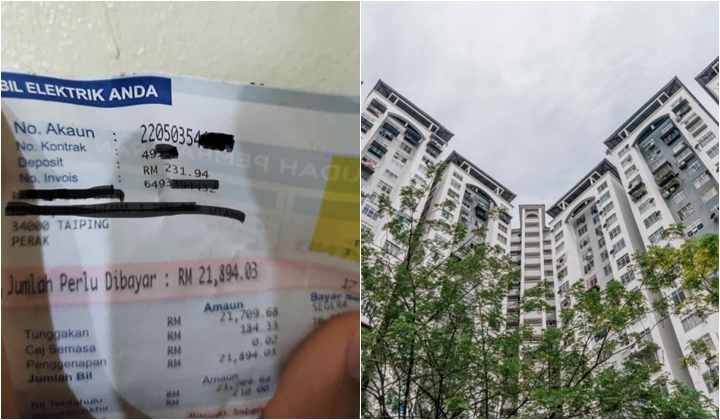Are Solar Panels The Solution To High Electricity Bills?
With solar panels, you can save a lot when it comes to electricity bill.

Subscribe to our Telegram channel or follow us on the Lumi News app for the latest stories and updates.
Sitting on the equator with sunny days most of the time, it is only natural to assume that Malaysians would benefit immensely if solar panels are adopted widely.
Sharing his story with Bernama, petrol station manager Peter Wong said his electricity bill used to be around RM280 a month, but he has been smiling since installing 10 solar panels in his house last year as he enjoys almost free electricity.
Wong, 37, started worrying about his rather steep power bills three years ago after the movement control order (MCO) was enforced.
According to Wong, his home has three air conditioners, and throughout the MCO as well as the heatwave, the air conditioners would be left on for long periods of time.
“As I couldn’t bear the higher electricity bills, I decided to invest in 10 solar panels with a capacity of 4.7 kWp (kilowatt peak), with eight facing east and two facing west on the roof of my double-storey terrace house in Georgetown (Penang),” he said.
The installation of the solar panels only cost him RM20,000 as he was one of the people who benefitted from the Net Energy Metering (NEM) programme.
Wong saw the immediate effect of the solar panels as he was able to save about RM280 per month on electricity bills and even obtain a negative balance if his household’s monthly energy use is less than RM280.
Net Energy Metering (NEM) programme
According to Tenaga Nasional Berhad (TNB), NEM is one of the ways to use solar photovoltaic panels (PV) to generate electricity and offset or lower your electricity costs.
The surplus solar energy production will be credited to you under this arrangement. You then use it to reduce your subsequent electricity bill. By doing this, you can reduce your electricity usage and guard against future increases in the price of electricity. Even better, you will join the push for renewable energy to lessen the impact of climate change.
For these kinds of connections, a bi-directional metre will be installed, and since metre reading will be done remotely, you must make sure that there is a strong enough communication signal.
In order to input extra electricity produced by solar panels into the power grid, TNB and the NEM programme have a 10-year contract.
To ensure safe operation and network dependability, TNB will carry out a technical audit prior to the solar PV system being connected.
For more info you can click here.
Is It Worth It?
According to an article from Property Guru, the Ministry of Energy, Science, Technology, Environment and Climate Change (MESTECC), said there are over 4.12 million buildings with solar rooftop potential in Peninsular Malaysia alone. If every one of those rooftops had rooftop solar installed, Malaysia could generate more than its current total electricity generation every year.
As many would know, solar panels produce electricity by turning solar light into electricity in photovoltaic cells, which absorb the light from the sun. Because of this, solar electricity is frequently referred to as “solar PV”.
Photovoltaic is what the initials PV stand for.
Only 10% of the energy captured from the sun by solar panels throughout the 1950s and 1960s was turned into electricity. However, currently it can convert 20% of the energy to electricity.
As you generate and use your own electricity rather than purchasing it from the grid, solar power generated at home can reduce your electricity costs. The prime example is as Wong mentioned above.
It does not stop there as you can even apply to SELL that energy back to TNB or Sabah Electricity Sdn Bhd (SESB).
By reselling any unused renewable energy to the electrical grid, the NEM programme rewards both residential and commercial solar power generators.
For more info on this you can click here.
One might think that installing a solar panel may be too expensive or too much of a hassle. However, keep in mind that this would be an investment for a greater and greener future.
Share your thoughts with us via TRP’s Facebook, Twitter, and Instagram.





